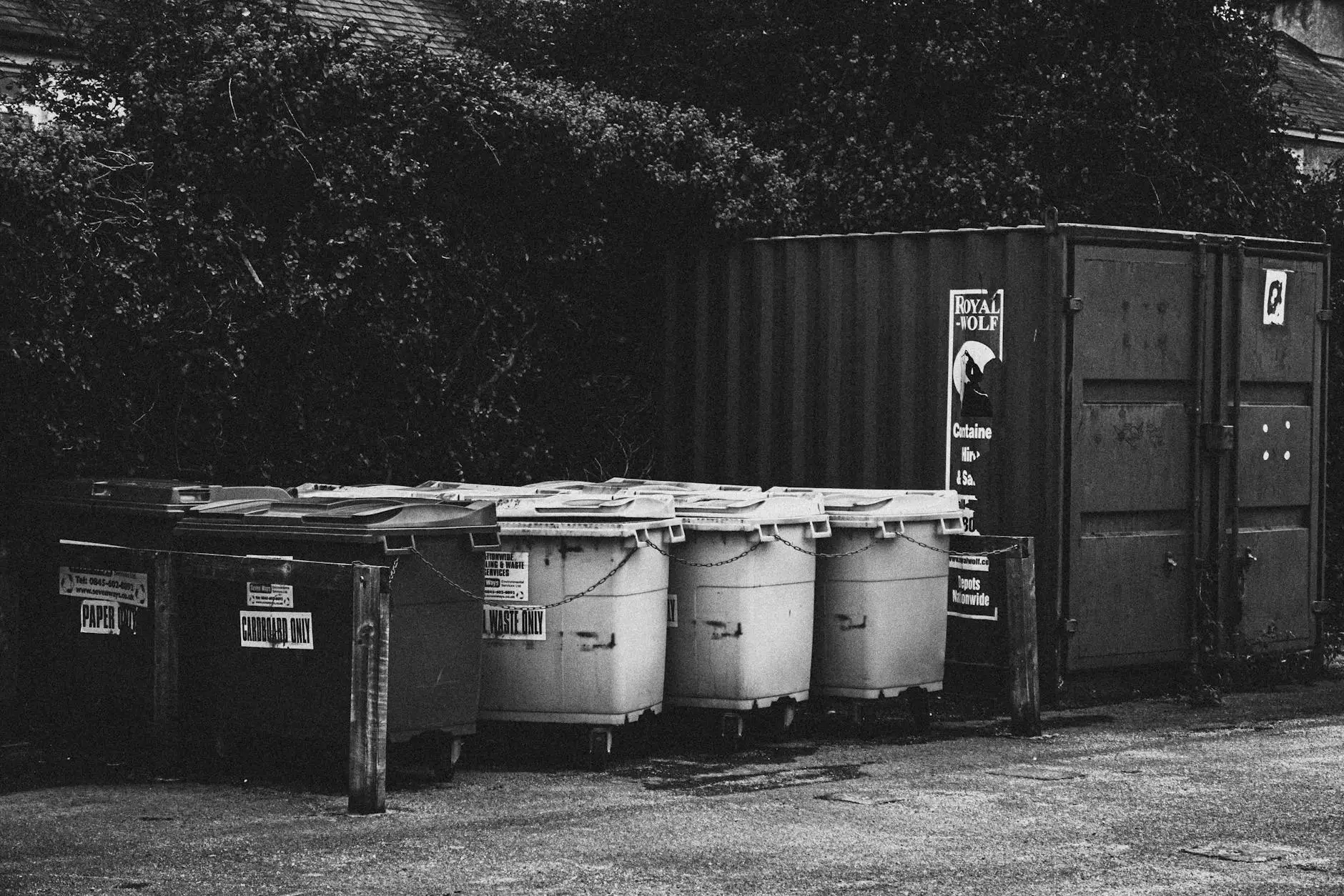Unlocking the Potential of **Scrap Recycling**

Scrap recycling stands as a pivotal process in today's industrial landscape, transforming waste materials into valuable resources. At Scrap Trading Center, we recognize the immense impact that recycling has on sustainability and economic efficiency. This article delves into the various aspects of scrap recycling, including its benefits, comprehensive procedures, and the significance of working with reputable industrial scrap buyers.
The Growing Importance of Scrap Recycling
In an era where environmental concerns dominate global discourse, scrap recycling offers a practical solution to mitigate waste and conserve resources. Its significance can be highlighted through the following points:
- Environmental Conservation: Recycling helps reduce landfill waste, lower greenhouse gas emissions, and conserve natural habitats.
- Resource Recovery: Through the recycling process, materials such as metals, plastics, and paper are recovered, reducing the need for virgin resources.
- Economic Benefits: Scrap recycling contributes to local economies by creating jobs and reducing the costs associated with waste disposal.
Understanding the Scrap Recycling Process
The process of scrap recycling is multifaceted, involving several crucial steps that ensure the efficient transformation of waste into reusable materials. Here’s an overview of this systematic approach:
1. Collection of Scrap Materials
Collection is the first step and often involves:
- Commercial Sources: Businesses generate large amounts of scrap through manufacturing processes.
- Residential Sources: Households discard items like appliances, electronics, and other metal products.
2. Sorting and Processing
Once collected, materials are sorted based on type:
- Metal Scraps: Aluminum, copper, brass, and steel.
- Electronic Waste: Old TVs, computers, and smartphones.
- Plastics: Types of plastics can be identified by markings.
This sorting step is crucial for ensuring that materials can be recycled effectively.
3. Shredding and Melting
Following sorting, materials are shredded into smaller pieces to facilitate recycling. For metals, the next step often involves:
- Melting: Metals are melted in furnaces to create new products.
- Refining: This process eliminates impurities, ensuring high-quality raw materials.
4. Manufacturing New Products
The resultant materials from the scrap recycling process are then used to manufacture new items. This step closes the loop in recycling, completing the transition from waste back to utilizable products.
Benefits of Partnering with Industrial Scrap Buyers
Engaging with industrial scrap buyers can significantly enhance the recycling process. Here are some key benefits:
- Expertise and Knowledge: Industrial scrap buyers possess extensive understanding of market trends and values, ensuring optimum pricing for scrap materials.
- Streamlined Processes: They can provide efficient logistics and handling, simplifying the sale and collection of scrap.
- Compliance and Regulations: Professional buyers are well-versed in environmental regulations, ensuring compliance in all transactions.
Types of Scrap Recyclables
Understanding the various types of scrap materials that can be recycled is crucial for maximizing the benefits of scrap recycling. Some common categories include:
Ferrous Metals
These are metals that contain iron and are magnetic. Examples include:
- Steel
- Cast Iron
Ferrous metals are often recycled to create new steel products.
Non-Ferrous Metals
These metals do not contain iron and are not magnetic. Examples include:
- Aluminum
- Copper
- Brass
Scrap recycling for non-ferrous metals is crucial because they can be more valuable than their ferrous counterparts.
Electronics
Electronic Waste (E-Waste) is an increasingly critical category:
- Old computers
- Smartphones
- Televisions
E-waste contains precious metals such as gold and silver, which can be recovered during recycling.
The Role of Scrap Trading Centers
At the heart of the scrap recycling industry are the scrap trading centers, which serve as vital hubs for managing the flow of recyclable materials. Their roles include:
- Facilitating Transactions: Scrap trading centers connect sellers with buyers, ensuring fair market prices.
- Quality Control: They help maintain standards in the recycling process by sorting and processing scrap materials effectively.
- Sustainability Advocacy: Scrap trading centers often promote the benefits of recycling to businesses and communities.
Challenges in Scrap Recycling
While the benefits of scrap recycling are significant, challenges still persist:
- Market Fluctuations: The prices of scrap materials can be highly volatile, impacting profitability.
- Quality Control Issues: Contamination of scrap materials can hinder the recycling process, reducing quality.
- Logistical Barriers: Transportation of scrap can be complicated, especially for smaller businesses.
Future of Scrap Recycling
The future of scrap recycling looks promising due to innovations in technology and growing environmental awareness. Some trends to watch include:
- Advanced Sorting Technologies: AI and machine learning are improving sorting efficiency, allowing for more effective recycling processes.
- Circular Economy Initiatives: Businesses are increasingly adopting circular economy models, focusing on sustainability and waste reduction.
- Increased Legislation: Governments are enacting policies that promote recycling and resource recovery, putting pressure on industries to comply.
Conclusion: Embracing Scrap Recycling for a Sustainable Future
As we move forward, the importance of scrap recycling cannot be overstated. It serves as a fundamental component in creating a sustainable and circular economy, benefiting both the environment and the economy. By partnering with trusted industrial scrap buyers and collaborating with scrap trading centers, businesses can maximize their recycling efforts, drive profitability, and positively contribute to a greener planet.
At Scrap Trading Center, we are committed to promoting effective recycling solutions and supporting industrial scrap buyers in navigating the complexities of scrap materials. Together, we can pave the way for a sustainable future through innovative recycling practices.









